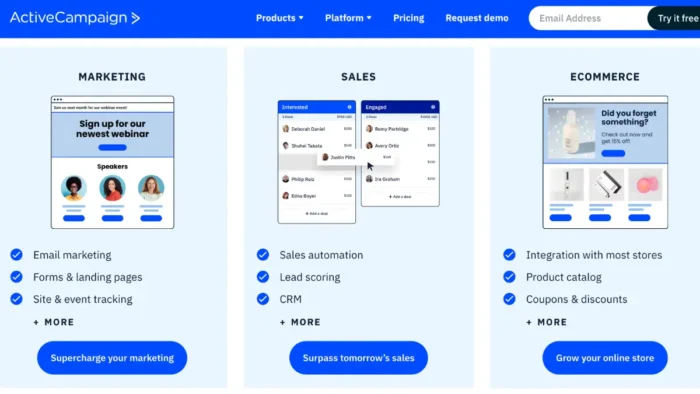Creating a website and creating a business website are two completely different things. Why? Because, while your business goals may reflect your personal ones, quite often they will go beyond them. This is why you will have to address these goals by fine-tuning your business website.
If you haven’t heard about what these things are before, you are in the right place. Stay with us as we go through the 7 things nobody told you about creating your first business website.
Always Own Your Domain
We have to stress the importance of owning your own domain because many business owners fall into the trap of registering a free one. Let’s stay on the positive side of this story. Owning your domain comes with a pretty long list of benefits:
- You can use your targeted keywords in your domain. This makes it easier for people looking for a specific product or service to find you. If you have a memorable and unique business name, you can simply buy a domain name which is the same as your business name.
- You will get to choose what you want to display on it. There is nobody in this world that can force you to display annoying commercials or pop-ups if you don’t want to.
- You will be able to get a branded email address for you and all your employees.
- Google prioritizes websites over any other online profiles, including social media. By owning a domain, you will increase the odds of people finding you online.
Hosting Choices Can Define You
Maybe you can’t see it now, but your business website host will define your online presence, in other words, you and your business. Since you might be wondering how this is even possible, let us elaborate.
While the looks and the functionality of your website play a big part in creating a memorable user experience, your host choice plays the other. A good host will ensure that your website loads fast, regardless of the visitors’ geolocation. Today’s customers expect fast-loading websites.
A good website host will ensure a consistent uptime for your business website. As your business grows, a few minutes of downtime can cost you big money. Not to mention all those pro web hosts that know exactly how many resources have to be dedicated to your website to withstand a heavy volume and traffic spikes.
Be Clear about Your Goal and Put a Focus on It
When you decide to build your first website, you have to decide on its role in your overall business strategy. Is it going to be only an online portfolio? Are you going to use it to capture leads via email subscription? Do you want to convert your website visitors to customers?
Establish your goals before you start creating your website. For instance, if you want to be competitive in the eCommerce landscape, you should use some of the tools for competitive price tracking and monitoring to boost profits.
Establish SEO Practices Early On
To properly make your first step into the digital realm, you should implement best SEO practices early on. This will help search engines pick up your website early on, index it and learn what it’s all about. And, it will save you a lot of time and cash, since you won’t have to revisit your website to optimize it for search engines.
Be mindful of the keywords you pick, though, as the role of keywords in B2B search marketing is not the same as one in a B2C one.
Holding your Own Among the Competition
Your future business website has to be unique, to help you make your business stand out from the crowd. Take your time. Make sure to explore your competitors’ websites, and give your best not to conform to dominant designs and practices. Your website should reflect your brand and if you add your personal touch to it, your visitors will remember it more easily.
Mobile Design is a Must
Let’s not lose precious time over this argument. We live in the era of smartphones and tablets. If you want to be successful, your website absolutely has to be optimized for mobile. This is not just important because the visitors will love you for it, but because search engines already favor mobile-ready websites over un-optimized ones as explained in this article.
Page Hierarchy
This is a simple one – the better the page hierarchy, the greater the user experience will be. Before you set anything in stone, explore the best practices in your niche. This will help you to plan out your desired hierarchy before you proceed to website building. There are three rules to abide by here:
- The hierarchy must remain logical.
- The number of categories should be between 2 and 7.
- The number of subcategories should be approximately the same for each category.
There you have it, some of the most important tips about creating your first business website that most people don’t talk about. If you follow our advice, you will end up a great website that will support your business goals and deliver a great user experience.



